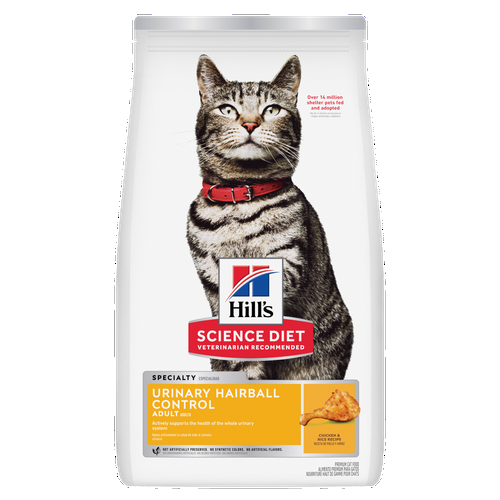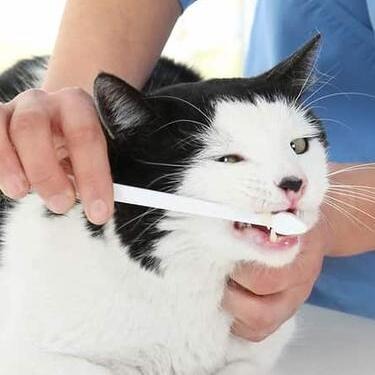
-
Find the right food for your petTake this quiz to see which food may be the best for your furry friend.Find the right food for your petTake this quiz to see which food may be the best for your furry friend.Featured products
 Adult 7+ Small & Mini Chicken & Brown Rice Recipe Dog Food
Adult 7+ Small & Mini Chicken & Brown Rice Recipe Dog FoodFor the unique nutritional needs of mature Small & Mini dogs
Shop Now Adult Small & Mini Lamb Meal & Brown Rice Recipe Dog Food
Adult Small & Mini Lamb Meal & Brown Rice Recipe Dog FoodFor the faster metabolism of Small & Mini dogs
Shop Now Hill's Science Diet Adult Oral Care Chicken, Brown Rice & Barley Recipe Dog Food
Hill's Science Diet Adult Oral Care Chicken, Brown Rice & Barley Recipe Dog FoodClinically proven kibble technology to reduce plaque & tartar build-up
Shop NowFeatured products Adult Urinary Hairball Control Chicken & Rice Recipe Cat Food
Adult Urinary Hairball Control Chicken & Rice Recipe Cat FoodActively supports the health of the whole urinary system
Shop Now Hill's Science Diet Adult Sensitive Stomach & Skin Dog Food
Hill's Science Diet Adult Sensitive Stomach & Skin Dog FoodHighly digestible recipe, gentle on stomachs. Nourishes skin & promotes a lustrous coat
Shop Now Adult Indoor Chicken Recipe Cat Food
Adult Indoor Chicken Recipe Cat FoodSupports energy level and beautiful fur in indoor cats
Shop Now -
Featured articles
 Easy DIY Dog & Cat Toys: Nine of Our Favorites
Easy DIY Dog & Cat Toys: Nine of Our FavoritesBrowse this comprehensive guide for several of our favorite DIY dog and cat toys that are sure to put a little pep in your pet's step.
Read More My Pet Ate a Lizard — What Should I Do?
My Pet Ate a Lizard — What Should I Do?Learn what to do if your pet eats a lizard, including whether they can be toxic and symptoms to keep an eye on when they've swallowed one.
Read More 15 Pet-Friendly Cities Ideal for a US Road Trip
15 Pet-Friendly Cities Ideal for a US Road TripCheck out our list of pet-friendly U.S. cities that are excellent travel options, offering off-leash dog parks and pet-friendly restaurants & hotels.
Read More -


You just noticed that your pet has some spotting on their body, and your veterinarian informed you that it's from vitiligo. But what is vitiligo in dogs and cats? Here are all the basics.
What Is Vitiligo in Dogs & Cats?
Vitiligo is a rare skin condition that some humans may develop, but so can cats and dogs. A human or animal with this condition experiences depigmentation, which occurs when the skin loses its natural pigments. The skin will turn white (or light pink) in patches and hair in those spots can also turn white.
Tri-County Animal Hospital in Wayne, New Jersey reported that vitiligo is a "condition characterized by symmetrical lack of pigment in the skin and white hair coat, especially involving the face and nose."
What Causes Vitiligo?
Is vitiligo something that can be "caught" from another animal with the condition? Simply stated, no. Austin Veterinary Emergency & Specialty (AVES) confirms that vitiligo is not contagious. However, this condition is often hereditary, so if a previous generation experienced depigmentation, your cat or dog is more likely to develop this uncommon skin condition. It's not clear why vitiligo occurs, but it's believed that it happens when something interferes with the body's melanin-producing cells.
Are Some Cats and Dogs More Likely to Get It?
If you're worried that your dog or cat might develop vitiligo, don't be too concerned, especially if you haven't noticed any white skin or hair spots. This skin condition is quite rare, though there are some breeds that are more likely to get it than others.
Tri-County Animal Hospital noted that vitiligo is common in dog breeds such as "Belgian Tervuren, German shepherd dogs, Doberman pinschers, rottweilers, German shorthaired pointer, Old English sheepdog, and dachshunds." Siamese cats may be predisposed as well.


Tasty Tips
Young pets may need several visits in their first year for vaccinations. Adult pets generally benefit from annual check-ups, while senior or special-needs pets might require more frequent visits.
Should You Be Worried About Depigmentation?
If you know your pet's bloodline and there haven't been any other cases of vitiligo in previous generations, you don't need to worry. However, pet parents who don't know their animal's family history of skin conditions might want to point out any of their pet's skin changes to their vet.
Since most cases of vitiligo in dogs and cats occur when they're young, depigmentation at an older age may require a visit to the vet. It may be easy to confuse going gray (a natural sign of aging) with losing skin pigmentation due to a medical condition. Hypothyroidism, stress, and kidney and liver disease may be the culprit behind depigmentation, according to AVES.
Vitiligo in cats and dogs is nothing to fear. Vitiligo in pets is painless and do not act any different as a result. Your pet will still live a happy life with some special spotting. Just make sure to discuss any skin changes with your vet!


Erin Ollila believes in the power of words and how a message can inform—and even transform—its intended audience. Her writing can be found all over the internet and in print, and includes interviews, ghostwriting, blog posts, and creative nonfiction. Erin is a geek for SEO and all things social media. She graduated from Fairfield University with an M.F.A. in Creative Writing. Reach out to her on Twitter @ReinventingErin or learn more about her at http://erinollila.com.
Related products

For the unique nutritional needs of mature Small & Mini dogs

Improves everyday ability to get up & go

Clinically proven kibble technology to reduce plaque & tartar build-up

For the faster metabolism of Small & Mini dogs
Related articles

Check out our list of pet-friendly U.S. cities that are excellent travel options, offering off-leash dog parks and pet-friendly restaurants & hotels.

Learn about veterinary dental care for your pet, including deep teeth cleaning procedures, which can help your dog or cat maintain proper dental health.

Learn what to do if your pet eats a lizard, including whether they can be toxic and symptoms to keep an eye on when they've swallowed one.

Browse this comprehensive guide for several of our favorite DIY dog and cat toys that are sure to put a little pep in your pet's step.

Put your pet on a diet without them knowing
Our low calorie formula helps you control your pet's weight. It's packed with high-quality protein for building lean muscles, and made with purposeful ingredients for a flavorful, nutritious meal. Clinically proven antioxidants, Vitamin C+E, help promote a healthy immune system.
Put your pet on a diet without them knowing
Our low calorie formula helps you control your pet's weight. It's packed with high-quality protein for building lean muscles, and made with purposeful ingredients for a flavorful, nutritious meal. Clinically proven antioxidants, Vitamin C+E, help promote a healthy immune system.

